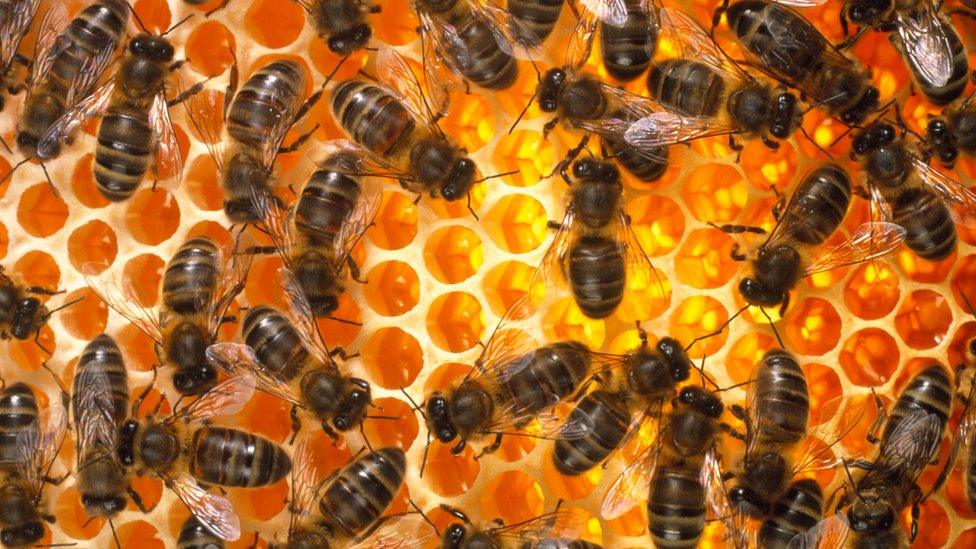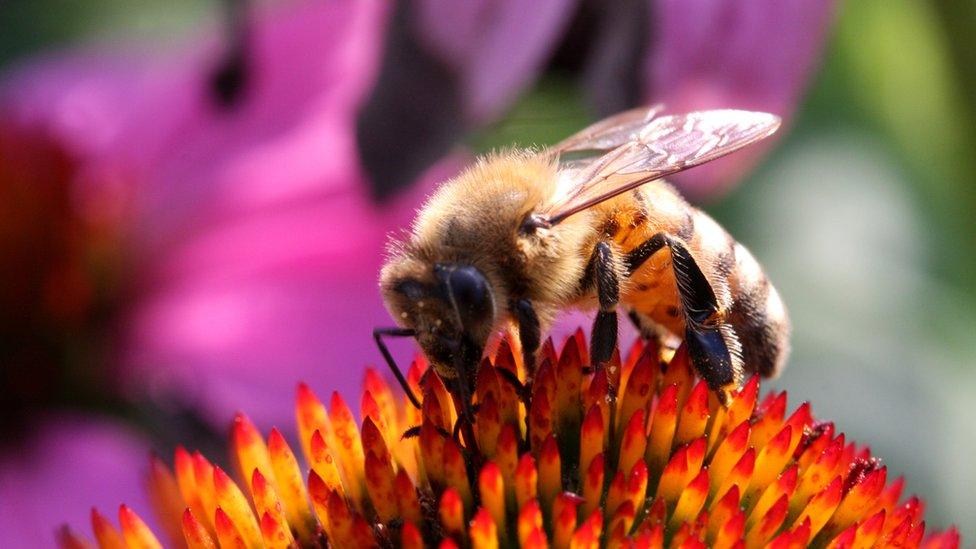Bees' Needs Week: Why are bees important and how can we help them?
- Published
- comments
WATCH: Why are bees so important?
It's Bees' Needs Week - a chance to showcase the un-BEE-lievably important work these little creatures do.
Bees help to grow food such as fruit and vegetables by flying around and pollinating plants.
But they are under threat, facing growing challenges from things such as climate change, diseases and habitat loss.
That's why bee campaigners are asking people to do more to protect the special insects. Keep reading to find out how you can help!
Why are bees important?

A third of the world's food production depends on bees.
Bees pollinate (a process vital to crops growing) three quarters (75%) of leading global crops, including oilseed rape, apples, soft fruits, beans and courgettes, as well as things like tomatoes and strawberries.
Bees are vital for maintaining the balance between living organisms such as human beings, plants, and animals, as well as their environment.
They also help reduce pollution.
Scientific studies have proven that bees have become increasingly endangered.
The UN says one million species face extinction.
Bees see ultraviolet waves, so their colours look different to our colours. They can't see the colour red - it looks black to them!
What can be done to help?

According to the Royal Horticultural Society, 85% of nectar in cities is produced in gardens, and bumblebees need plenty of it to supply them with energy throughout their busy flying season!
For Bees' Needs Week the Government and conservation groups have put together five top tips on what we can do to support bees. They are:
Grow more flowers, shrubs and trees
Let your garden grow wild
Cut your grass less often
Don't disturb insect nest and hibernation spots
Think carefully about whether to use pesticides
